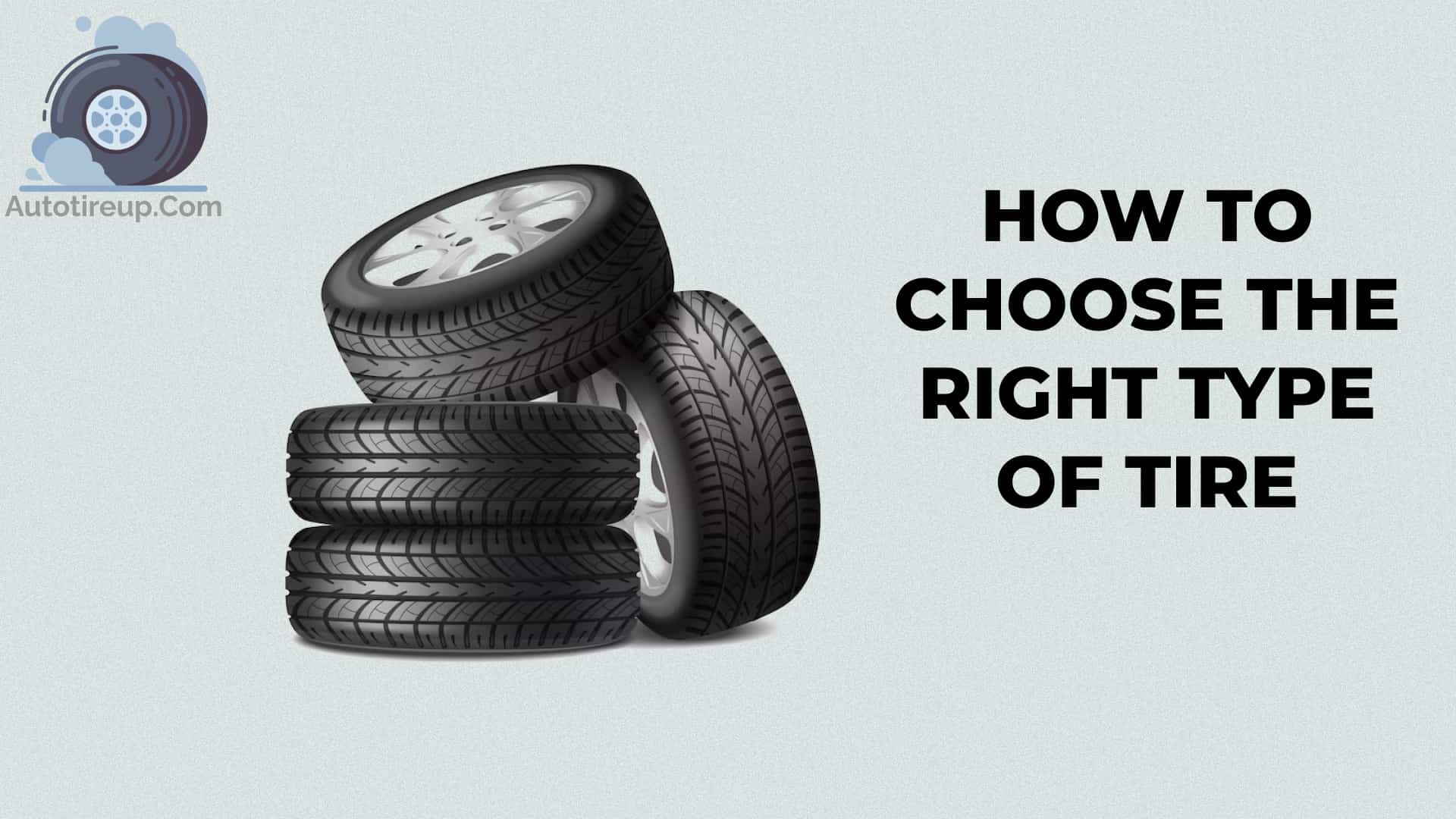With countless makes, models, and design variations available today, selecting the ideal tires to match your car and primary usage can seem daunting. However, fundamental knowledge of key criteria like seasons, weather, intended vehicle type, preferred terrain, top priorities, and expert brand comparisons helps simplify the process substantially. This definitive guide breaks down the most essential considerations for choosing the right tire type for your needs.
Key Types of Tires
While exceptions exist, consumer vehicle tires largely fall into a few common categories:
Major Tire Types By Vehicle and Usage
| Tire Type | Best For |
| All-Season | Versatility across moderate weather year-round |
| Summer | Dry, hot conditions with maximum grip wanted |
| Winter | Exclusively cold, ice, snow weather |
| Off-Road/All-Terrain | Trucks, SUVs, rough unpaved trails |
Prioritizing Key Buying Factors
When evaluating tires, begin by ranking the following factors by personal importance, from essential to nice-to-have:
- Seasonality – All-year, summer, winter, or combination usage.
- Weather – Ice, snow, rain, heat level preferences.
- Vehicle Type – Specifications for car, truck, SUV.
- Terrain – On-road, off-road, mixed crossovers.
- Priorities – Grip, handling, comfort, noise, eco-friendly.
- Budget – Premium, mid-range, or budget price points.
These priorities help filter options to models optimized for your needs. For example, an electric SUV owner in a Northern climate concerned about snow/ice traction and range would benefit most from studying dedicated winter tires to shortlist appropriately.
All-Season Tires
For drivers requiring well-balanced traction, grip, and treadwear from their tires across moderate weather fluctuations year-round, all-season tire models offer the broadest adaptability. Major developments in all-season tire engineering allow the latest generations to remain usable even in light snow, unlike their predecessors. Leading all-season tire lines from Michelin, Continental, Goodyear, Pirelli, and more provide confident handling across dry, wet, and cold conditions. Due to their jack-of-all-trades competency across variable climates and conditions, all-season tires suit most regular passenger vehicles well as a dependable default option. For owners residing in extremely hot or cold regions respectively, however, strictly summer or winter tires remain preferable to maximize performance.
Top All-Season Passenger Tire Models
| Brand | Model | Description |
| Michelin | Defender T+H | 80k mile treadwear warranty, strong wet/dry grip |
| Continental | PureContact LS | Low-rolling resistance, smooth, quiet ride |
| Goodyear | Assurance MaxLife | Up to 100k mile treadwear longevity |
| Pirelli | Cinturato P7 | 30k+ mile warranty, optimized handling |
Summer Tires
Purpose-built for maximum warm weather responsiveness, summer tires utilize specialized tread compounds and patterns to deliver exceptional grip and short braking distances on clear dry pavement or winding roads in particular. The soft supple construction of summer tire rubber allows it to conform closely to the road’s contours, though this comes at the cost of faster wear and diminished cold-weather behavioral properties. For these reasons, drivers in temperate to hot regions with minimal snow or freezing temperatures will benefit most from installing high-performance summer tires to realize quicker steering input reactions, tenacious cornering ability, and spirited vehicle dynamics overall. Leading summer tire lines from respected companies like Bridgestone, Continental, Michelin, and Pirelli receive praise from critics and drivers alike. When replacing factory-equipped tires, always verify your vehicle owner’s manual for approved summer tire sizes and load ranges to avoid safety or drivetrain issues.
Winter Tires
Vehicles subjected to consistent heavy snow, ice, freezing rain, or suboptimal temps below 45°F essentially require winter tires for assured mobility and safe handling. Unlike all seasons, winter tires incorporate advanced tread compounds and patterns that stay supple below 7°C while providing thousands of additional biting edges and sipes for digging into snow. Further, they also often integrate more noise insulators to dampen ambient sounds from the specialized tread. Consequently, drivers residing in predominately cold northern regions with consistent winter precipitation will benefit enormously from proper winter tires for retaining year-round drivability. It remains crucial however to swap winter tires off once warmer ambient temperatures become the norm since the soft rubber wears rapidly on dry pavement. Known for engineering excellence in winter tires, Nokian, Michelin, Bridgestone, Goodyear, and Continental rank as top performers season after season.
Highest Rated Winter Tire Models
| Brand | Model | Description |
| Nokian | Hakkapeliitta R3 | Boreal forest inspired deep snow traction |
| Michelin | X-Ice Xi3 | 10% improved braking, precision handling |
| Bridgestone | Blizzak WS90 | 30% shorter braking on ice vs. leading competitors |
| Goodyear | Ultra Grip Ice WRT | Serious snow traction, 65k treadwear warranty |
Off-Road & All-Terrain Tires
Trucks, full-size SUVs, and certain crossover models venturing frequently onto unpaved trails, overland terrain, gravel, dirt, sand, or uneven construction sites require the advanced traction that off-road or all-terrain tires provide. Featuring extra-tough bodies, aggressive open tread patterns, and reinforced sidewalls, these specialty tires power through muddy, snowy, rocky backwoods environments with aplomb while still retaining acceptable on-road comfort and stability. Truck owners seeking the ultimate off-road traction opt for dedicated mud-terrain tires from Nitto, BFGoodrich, Toyo Tires, and Cooper. For balanced on/off-road versatility at a friendlier price point, all-terrain tires from General Tire, Goodyear, Firestone, and Mickey Thompson add confident rough terrain grip without the rougher on-road sacrifice of hardcore mud variants. Verify manufacturer-approved load ranges and sizes before equipping.
Conclusion
Evaluating priorities like weather, vehicle specifications, use case scenarios, and features facilitates simpler educated tire buying decisions. All-season models work for typical usage, while summer, winter, and off-road tires deliver optimized extreme-condition performance. Checking manufacturers for approved sizes remains critical as well. Being knowledgeable on major tire types and differences keeps your vehicle handling safely and reliably across every road ahead.
Stephen Moen is a renowned expert and a guiding beacon in the tire industry, with an illustrious career spanning over two decades. As the founder of AutoTireUp, Stephen combines hands-on experience with profound industry knowledge to provide genuine, in-depth tire reviews and insights.

